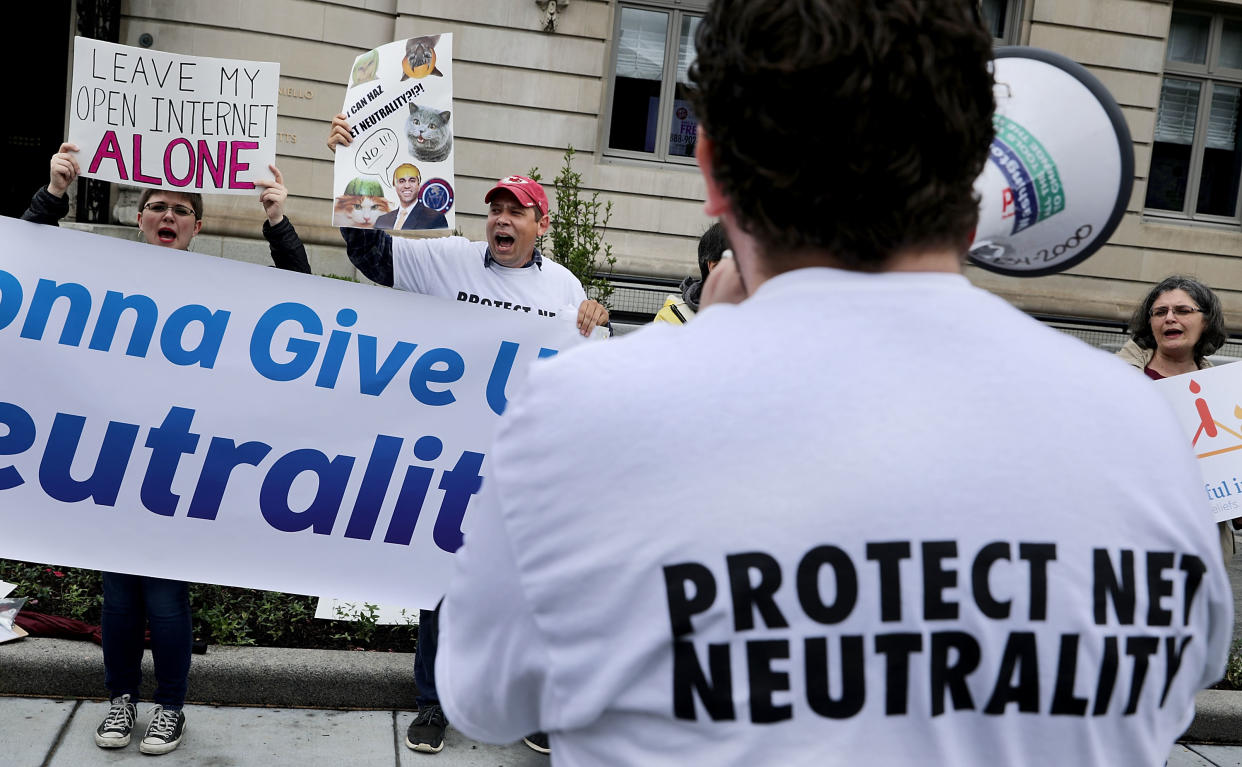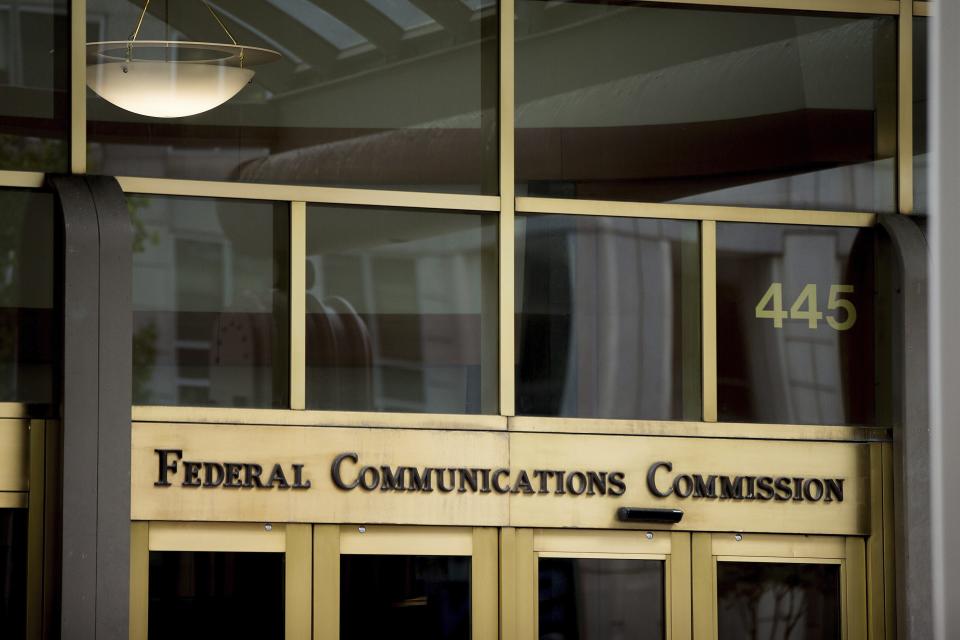What Canadians need to know about net neutrality

Whether you love streaming your favourite Hollywood TV shows, or you’re a small business owner or independent artist trying to expand your audience, the United State’s proposal for new net neutrality rules could have an impact in the Canadian market.
The U.S. Federal Communications Commission (FCC) has announced that on December 14, 2017, it will vote on whether to dismantle its current net neutrality regulations, established by the Obama government in 2015. This new proposal will reverse the Title II designation that internet service providers (ISPs) have, classifying them as common carriers and prohibits blocking, throttling and paid prioritization of services.
“Under my proposal, the federal government will stop micromanaging the Internet,” FCC chairman Ajit Pai said in a statement. “Instead, the FCC would simply require Internet service providers to be transparent about their practices so that consumers can buy the service plan that’s best for them and entrepreneurs and other small businesses can have the technical information they need to innovate.”
Net neutrality refers to the principle that all internet traffic should be open and treated equally, meaning consumers can access content on the internet without any interference from ISPs. According to Pai’s proposal, dismantling the FCC’s current net neutrality regulations will allow ISPs to prioritize their own content and services, but providers are also mandated to disclose whether they allow blocking and throttling of services.
“The Federal Trade Commission (FTC) will once again be able to police ISPs, protect consumers, and promote competition, just as it did before 2015.,” Pai said. “Notably, my proposal will put the federal government’s most experienced privacy cop, the FTC, back on the beat to protect consumers’ online privacy,” Pai said.
The increased influence and control that would be available to U.S. ISPs was instantly greeted with concern and criticism from telecommunications experts and advocacy group in Canada.
“The entire internet in the U.S. is a pay-for-play platform where the default is that you will be in the slow lane, unless you’re paying to be in the fast lane,” Cynthia Khoo, external legal council for OpenMedia said.
Net neutrality in Canada
This pay-for-play concept has not been the approach in Canada. Historically the Canadian Radio-television and Telecommunications Commission (CRTC) has been a strong supporter of net neutrality.
“No Canadian carrier shall, in relation to the provision of a telecommunications service or the charging of a rate for it, unjustly discriminate or give an undue or unreasonable preference toward any person, including itself, or subject any person to an undue or unreasonable disadvantage,” the CRTC mandates in subsection 27(2) of the Telecommunications Act.

Impact of FCC proposal
Since the U.S. announced its proposal to dismantle existing net neutrality regulations, Canadian advocacy groups and telecommunications experts have expressed concerns about how this proposed change could impact Canadian businesses, consumers and the telecommunications industry as a whole.
“I do think that Canadian businesses will be affected,” Michael Geist, Canada Research Chair in Internet and E-commerce Law at the University of Ottawa, Faculty of Law said. “Canadian businesses that are online looking to break into the U.S. market are going to suddenly find themselves subject to the same two-tier internet that emerges there.”
With U.S. ISPs allowed to prioritize services they either own or have agreements with, the lack of net neutrality rules could result in high costs for Canadian businesses looking to break into the market.
“A sole business in Canada, how are they going to pay Comcast or pay Verizon to make sure that people can reach their shop the same way they can reach someone who is in the U.S. and can afford to pay,” Khoo said.
“What you would get is a very closed content system because there wouldn’t be any way to discover new content, or even new media, because there would be a choice made for you by your major telecom providers, most likely speeding up or make cheaper [the services] they own or are affiliated with,” John Lawford, executive director and general counsel with the Public Interest Advocacy Centre (PIAC) said.
From the perspective of a Canadian internet user, there could also be an impact on the ease at which we access certain services that originate in the U.S.
“Any traffic that originates from U.S. based companies and servers, or that transits through the U.S., may be slowed down or prioritized in some new way that may not help Canadians,” Lawford said. “It would take a while for agreements to be concluded in the United States but at some point even major services may get slower or faster.”

Canadian ISPs want the same rules
The main concern Canadians have is the impact that this decision could have on Canadian ISPs who could benefit from a lack of net neutrality regulations, similar to the U.S.
“If they see this happening int he U.S., I would expect…that they would argue that they are being put at a disadvantage over their U.S. counterparts, and they would like to see the same net neutrality rules dropped,” Geist said.
This would not be the first time that Canadian ISPs have questioned net neutrality rules. Earlier this year, the CRTC ruled that Quebecor Media Inc.’ Videotron Ltd. violated subsection 27(2) of the Telecommunications Act by exempting its Unlimited Music program from monthly data caps, giving the service “unreasonable preference.”
Some say Canadian ISPs could use the argument of promoting Canadian content as a way to entice the government to augment its existing net neutrality rules.

Trudeau government on net neutrality
Should the FCC chairman’s proposal pass, the Canadian government may be pressures by the U.S. to harmonize regulations.
“I would expect pressure from the United States for Canada to harmonize with them because we’ve seen this in other contexts,” Khoo said. “There’s pressure in Canada to harmonize our privacy laws for example, there’s pressure on Canada to harmonize our copyright law and other intellectual property laws, and I could see this potentially happening in this context as well.”
Despite the fear that the U.S. decision could spark similar movement in Canada, the Canadian government maintains that they are committed to the net neutrality principle with prime minister Justin Trudeau saying that he is “concerned” about the FCC’s proposal.
“Net neutrality is something that is essential for small business, for consumers, it’s essential to keep the freedom associated with the internet alive,” Trudeau told reporters on Wednesday during his recent housing policy announcement. “The idea of throttling certain sites or charging extra for certain services just does not make sense.”
Significant impact in the Canadian market will be heavily influenced by the government’s continued commitment to net neutrality and maintaining a “open” internet.
“It would appear the government remains very committed to net neutrality, I think it would be useful to see that even embedded in legislation, so going beyond policy, but it’s clear the starting point for now is that Canada sees net neutrality as an important part of an innovation strategy and isn’t about to follow the U.S. lead,” Geist said.
With NAFTA negotiations underway, some experts see this renegotiation as a platform the Liberal government can use to express their net neutrality concerns to the Trump administration.
“There have been a lot of encouraging signs from this current government of their commitment to maintaining an open and affordable, and accessible internet for Canadians, and we just really hope that they would take this opportunity to show continued, meaningful commitment to that principle,” Khoo said.
All experts believe that is it very likely that Pai’s proposal moves forward beyond the December 14, 2017 vote. How the Canadian government and international leaders respond is still up for question.


